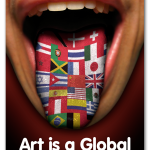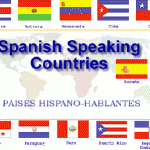Archives
now browsing by author
Linguistic Articles
There are many linguistic websites/blogs out there. Seth and I have found a compilation of websites that we found interesting. We share below some fun and interesting linguistics sites.
1- http://linguistlessons.blogspot.com/
This is a classic linguistics blog. The author reviews and writes about miscellaneous things that relate to linguistics. He/she is most likely a linguistics professor.
2- http://www.ojohaven.com/fun/
This website has many links for articles and utilities that the author found useful. It is a great place to find linguistic inspiration.
3- http://www.reddit.com/r/linguisticshumor
If you don’t know what reddit is, it is a hub for miscellaneous blog type groups. There are many out there, but this one is for linguistics humor.
4- https://www.pinterest.com/ncihc/linguistic-humor/
Much like the reddit, there is a Pinterest for linguistic humor as well. This one has more photos and images that are quite funny.
5- https://instaedu.com/Linguistics-online-tutoring/
Do you need a linguistic tutor to help with homework and understanding? Here’s a website that hooks people up with tutoring for linguistic help.
6- http://linguistlist.org/ask-ling/
Don’t need a tutor, but have a problem/question that needs answering? Here’s a website where you can ask professional linguists anything!
7- http://www.linguisticsociety.org/content/why-major-linguistics
What is linguistics? This website shares general information to convince the lingu-idiots into being linguistics majors.
8- http://www.studyspanish.com/
a free online Spanish class with courses ranging from beginner to advanced.
9- http://www.spanishdict.com/
this website gives extensive word definitions in Spanish and also conjugates any verb that you can think of in the Spanish language.
10- http://8tracks.com/cherryamy/bonito
this website teaches the viewer the Spanish language through auditory segments and music.
a website used as an aid to teach a variety of different languages.
This website compares languages to one another.
LFL: Student, Athlete, Linguist, do-gooder

About me:
I was born and raised in Minneapolis, MN. I speak both English and Swedish. I play hockey and soccer. Die hard Wild fan.
My Language:
I’m a middle class white male from Minneapolis, MN. I am an artist and athlete. I lived in Sweden for a year. I picked up the language very quickly and became nearly fluent. Since this time I’ve lost a lot of my vocabulary but have maintained a good ability to understand and communicate in Swedish. I’ve been back several times to visit family and friends.
Favorite Music:
I can listen to anything depending on time place and mood. I love live hip-hop concerts. I also like to listen to indie-type music. Fink, Bombay Bicycle Club and Cage the Elephant are primo.
Favorite Word: Lagom
This is a Swedish word that means “Middle” or “Moderate” or “Just right”. The word doesn’t translate directly into English because it is used differently. I like the word because it describes a lot of the things well. I’m feeling lagom: relaxed, content, good.
Ideal Linguistic Adventure:
I meet a cute Swedish blonde girl. We alternate from speaking Swedish and English. We date for a few months. She wants me to meet her billionaire parents. I fly into Stockholm in a private jet and meet her parents at their mansion. Her mother speaks Swedish and French. Her dad offers me an executive position at his graphic design firm in France. The mother teaches me French and I soon become fluent in both French and Swedish.
How is linguistics like a pine cone?
Linguistics is hard. It’s a spiky and rough on the outside. But pine cones come from trees; there is a larger meaning and use. Linguistics is complex but paramount to our understanding of the world.
Language on the internet bruh
I’ve noticed that the way people use language differently on the internet. Different sites have a different required mannerism. Linkedin is the most formal because of the prospect of a job. Facebook is more “family” like; formal but still room for humor. Twitter and Instagram are probably the most playful because of the constant need to post and appeal emotionally to others to get likes on posts.
Language discussion with mama bear
I called my mother after class and told her the my assignment. She’s the swedish one of the family and she gave me a few english slang words she used in the 80’s. In Sweden, when you say hello, usually you say “hej hej” or “hey hey”. When you say goodbye you say “hej hej”. It’s weird because when I lived in Sweden I remember saying goodbye and then turning my back, but then they would say “hej hej” and I would turn around confused. Funny stuff.
Experiences with language and culture
Our group has an interesting relationship with language. We all come from different backgrounds with different families. Some of us have english as a second language while others are learning a third. It’s interesting to see the vast differences in language that just five students have with one another. Here we will write our brief language story and how it has impacted our lives.
Stellan,
I feel that I have had a unique experience with language. My mother is Swedish. I’ve grown up learning Swedish as a second language. In the 6th grade I lived in Sweden for a year. I played hockey and made friends. Speaking english was a struggle, because most of the people I met were not very good speakers. After my time in Sweden, I maintained a good ability to speak Swedish. I’ve gone back a few times since then to visit family, but I mostly speak swedish with my mom. In high school took Spanish for 3 years. Surprisingly I was not good at all. It might have been the teaching style or environment, but I can’t speak spanish if my life depended on it. Being immersed in the culture and having to talk to fluent speakers really helped me become a better speaker. From this experience i’ve learned that theres much more to language than vocabulary and grammar. There is slang, gestures and culture that needs to be understood in order to be a more effective speaker.
Raul,
Being born as a first generation American, I grew up learning English as a second language. My parents are both from Mexico so naturally my first language is Spanish. I reside and was raised no more than 2 miles away from the Mexican border. In my house, Spanish was, and still is, the only language spoken between each other. I think it’s great that I have been raised to learn two languages because it increases my possibilities for a career job by a great margin, as well as communicate with a larger amount of people. As of now, I have yet to experience language to be a burden and have thankfully only had positive experiences as well as benefits from being bilingual.
Kat,
Being born as a first generation American, I grew up learning English as a second language. My parents are both from Mexico so naturally my first language is Spanish. I reside and was raised no more than 2 miles away from the Mexican border. In my house, Spanish was, and still is, the only language spoken between each other. I think it’s great that I have been raised to learn two languages because it increases my possibilities for a career job by a great margin, as well as communicate with a larger amount of people. As of now, I have yet to experience language to be a burden and have thankfully only had positive experiences as well as benefits from being bilingual.
Seth,
I was born as a third generation American, so I grew up in a household of people that speak english as a first and only language. I thought for the longest time that I would only have experience with the english language, but when I reached high school, I decided to take spanish classes. I fell in love with the language of spanish and took a two month trip to Mexico by myself. I stayed in a house with only spanish speaking people and I struggled to communicate orally with anyone for a while, but I was able to learn quickly. It was a frightening yet rewarding experience, and I am glad that I decided to do that.
Sydnie,
I had plenty of opportunities to explore various languages and actively sought those experiences. My first interest in a language different than my first was Russian, as I had heard it spoken on some late night television show when I was eleven. I hadn’t given much thought to learning any new jargon, however, after hearing how beautiful and different Russian sounded, I attempted to teach myself the language through Youtube videos and a cheap knockoff of Rosetta Stone—needless to say, the lack of proper instruction coupled with my eleven year old brain was altogether a hindrance to the development of a second language.




 D5 Creation
D5 Creation